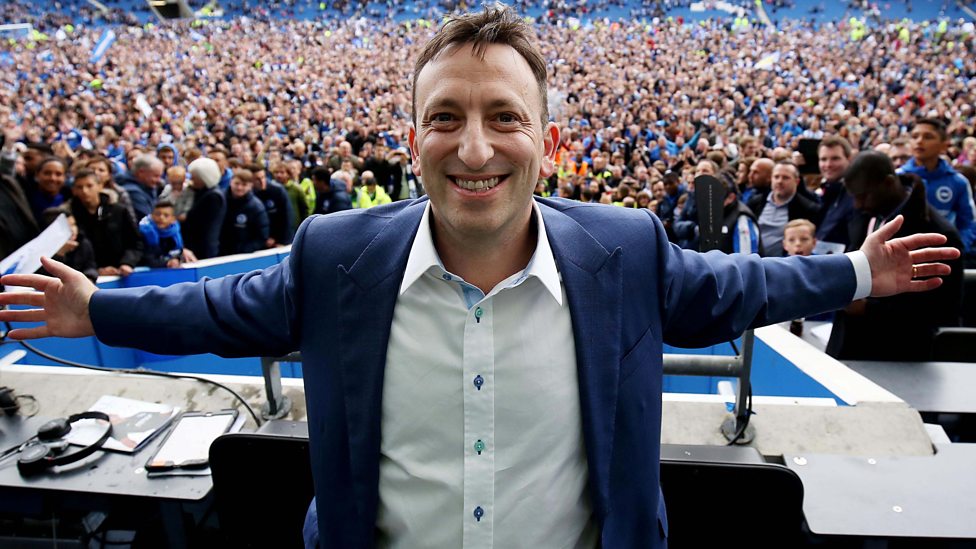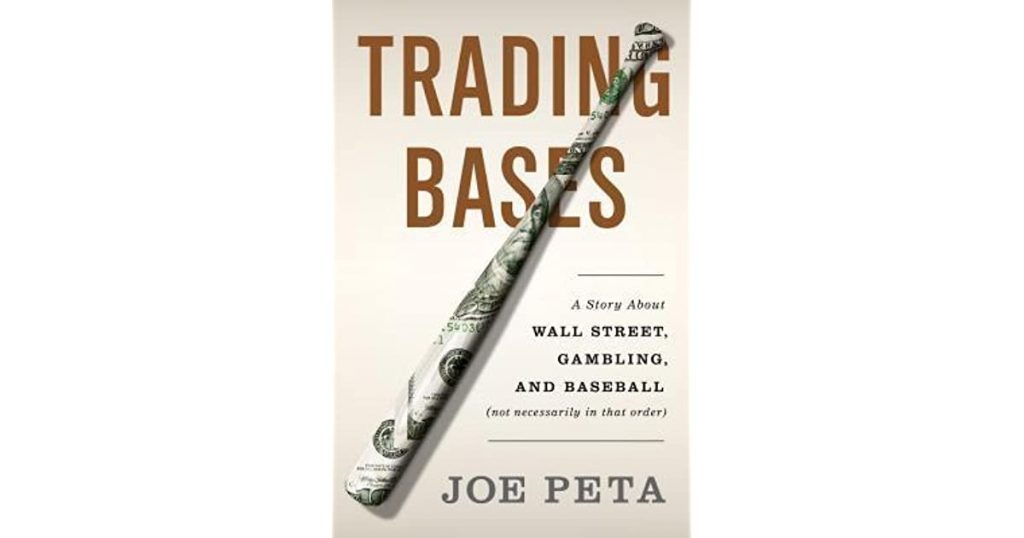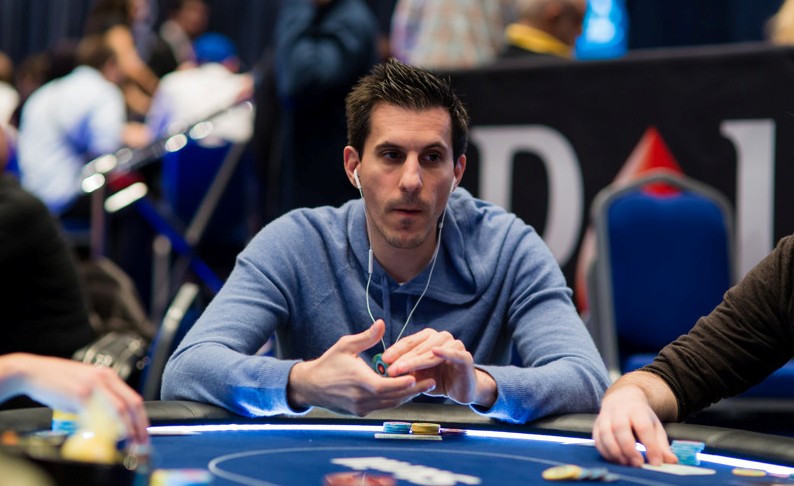A bad bettor who does not want to become the best predictor and does not dream of topping the capper ranking. However, almost all players stop at the level of amateurs and do not achieve outstanding results. So what is the secret of a successful trader: luck, hard work or something else? The answer to that question lies in the success stories of TOP Cappers.
Tony Bloom

Tony Bloom’s predilection for gambling manifested itself at a very early age. It is said that this craving was passed down to him from his grandfather, who was always disappearing in gambling clubs or bookmaker’s offices. Like the vast majority of gamblers, grandfather Tony lost. However, he never lost control and was always able to stop in time.
As a schoolboy Tony spent all his pocket money in gambling houses. Neither the age limit – gambling was allowed only from 18 years old – nor the fact that he had to skip classes at an elite college and run to the other end of town stopped him. Even the constant losses didn’t stop Tony.
After college, Tony went to study mathematics at the University of Manchester. At the same time he worked at Ernst & Young, a big accounting company. This soon got boring and Tony decided to become a professional bettor. He made very aggressive bets: in an evening could lose up to five thousand pounds. But more often still won. The mathematical background and accumulated experience did the trick.
Tony developed his own strategy, bets were growing with each month. The bookmakers were faced with a question: either accept the losses, or try to win the talented young man over to their side.
The second option suited everyone. Tony started working for a betting company Victor Chandler. The cooperation was already fruitful after Tony’s first business trip to Thailand, from where he brought the Asian total to Great Britain. At that time few understood how it was possible to make money on it. Tony was put in charge. He developed a mathematical model, formed a line and launched the product to the masses.
The most important thing Tony learned to do during his time at Victor Chandler was correctly evaluate sporting events. One day during a match, Tony burst into the founder’s office and told him that one of the teams was severely undervalued by other bookmakers. Chandler bet a few million on Tony’s recommendation, and the very next day he had more millions.
A few years later, Tony founded his own betting company where he could place his bets online. His competent approach to business and correct line formation allowed him to succeed quickly and sell the business for 1.5 million pounds.
At the same time, Tony began his passion for poker. He set up several online gambling sites and sat down at the table himself and became actively involved in tournaments. His way of playing attracted many people. He was soon nicknamed “lizard” (lizard) for his equanimity and was named one of the top 15 players in history.
Tony was always one step ahead. After selling his betting company and poker sites, Tony created a new business. He was no longer taking bets. He was consulting. To take advantage of consulting, you had to make a deposit of 2 million pounds and wait six months for a dividend.
The company’s profits are estimated by some to be as much as a hundred million pounds a year, but no one knows the exact numbers. Tony does not like to talk about business, he still has a passion for gambling and develop new mathematical models for assessing events.
Joe Peta

Unlike Tony Bloom, prominent bettor Joe Peta had no relatives who were into betting, and he himself was not inclined to gambling. He led an ordinary life: he worked on Wall Street as a stockbroker, in his spare time he was fond of baseball.
Joe Peta got into the world of betting by chance. It all started with a tragic incident on the road – Joe was hit by a car and ended up in a wheelchair. He could no longer be useful in the stock market, because the main thing there is the movement and speed of transactions. He was fired.
The only hobby he was left with was baseball. Joe began to spend more time watching the games. He became so deeply immersed in the game that he knew every detail: which player threw better, which player ran faster. Peta was aware of the physical condition of players, transfers, and other baseball news.
One day Joe decided to place a bet, because he knew the outcome of the event almost for sure. The bet played out. And then Peta realized that he had no trouble decomposing a baseball game into individual players facing each other and calculating which team would win in the end.
According to Joe, it was even easier than being a stockbroker, because in baseball he had almost complete information, while in the stock market the level of uncertainty was steadily higher. In the first year he achieved a return of about 40% and became the best baseball prognosticator.
The caper’s statistics attracted large investments. Joe Peta operated not only with his own money and was able to make a decent profit. However, after a while the yield fell to 10-15% and Peta decided to quit betting.
Peta didn’t top the brokers’ rating, but managed to earn good money, make a name for himself and open his own consulting company. Not a bad story for a man who ended up in a wheelchair, lost his job and may have finally given up.
Bob Vulgaris

Bob Vulgaris had the example of a man who bet often and for large sums of money in front of him since childhood. It was his father. From time to time Bob’s family was on the verge of bankruptcy.
Even as a boy he understood that betting was a very risky path to enrichment, which for most gamblers ended in failure. He saw ruined players in casinos and betting shops. The main conclusion Bob made as a child was that you should never bet without fully understanding what was going on. Bets made at random never win.
At the age of 25, Bob started betting on basketball. He had a good understanding of the game and realized that teams were more focused on results in the second half: they attacked more, fouled more and took more penalties. That means the second half is more often productive than the first. The bookmakers thought, however, that the scoring was even in both halves.
Bob Vulgaris decided to test his hypothesis and started with a pot of $80,000. The strategy worked steadily, and in a couple of years Bob’s bankroll was already over a million. After a while, Bob could already afford to bet a million dollars a day. In five years, he made a fortune.
Bob’s main mistake was hoping bookmakers would never correct his mistake and he would always earn the same amount. But no. Over time, the bookies optimized their line, and Bob’s scheme stopped working. He lost a third of his pot in a month and was forced to stop.
Bob stopped betting only temporarily. He enlisted a fellow mathematician to develop a program that could calculate the outcome of a basketball game based on pre-entered parameters: field-goal percentage, shooting accuracy, and a host of others. But the returns on such a program were low.
Bob was forced to admit that he was no longer able to make money on bookmaker bets. Vulgaris continued to bet on basketball, but not as actively and without the same excitement. And then he switched completely to playing poker.
Conclusion:
To become an outstanding bettor, you need:
- Have a good understanding of the sport on which you will be betting
- Try to find a pattern which the bookmaker has not noticed
- Distribute the pot wisely
- If the first 3 points have been made, you must make the most of it as quickly as possible
- When the profitability goes down, you can attract external funds or do some consulting.

